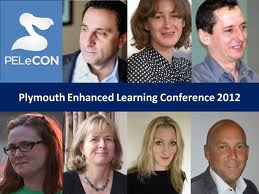This blog post has been prompted by my attendance at the 10th Galway Symposium on Higher Education (#celt12), which focused on the written word in the context of higher education and where, in the opening plenary entitled “Literacy in the Digital University”, Mary R. Lea entreated us to “step back and take a critical lens to changing knowledge making practices and the implications of these for understanding academic literacies in today’s digital university.”
In the first instance, it must be
acknowledged that literacy can be variously conceptualised, with each
conceptualisation signalling different concerns and approaches:
- literacy as cognitive/transferable skill - reading and writing
- literacy as capability (in anything) - e.g. computer literacy, emotional literacy, scientific literacy
- literacy as situated/social practice - cultural
Indeed, largely to beget the production of texts, technologies have always been involved in learning. Thus, within higher education, an institution whose primary function is to produce and validate knowledge, textual production and the practices that support it are of paramount importance (Goodfellow and Lea, 2007). However, with digital technology now integral to society and valued knowledge becoming increasingly communicated in digital forms (Beetham et al., 2010), the nature of texts is changing and the concept of ‘digital’ becoming increasingly significant to higher education. Even so, given the centrality of texts, it seems to me that caution needs be exercised so as not to unduly valorise technology as the driver of change.
Moreover, an academic literacies perspective (Lea and Street, 2006) positions reading and writing as a set of social practices pertinent to the situated context of higher education and what is more, considers the relationship between texts and how both academics and students make meaning through these practices. Texts, and the technologies that produce them, embed ideologies and epistemologies. After all, knowledge is not just out there; it is always represented in and through the choices made in the production of texts. Consequently, the texts and supporting practices that become valorised within higher education must by implication valorise the ideologies and epistemologies therein.
Thus, digital literacies are as much about one’s “text life” and what this represents as they are about one’s technology use.
References:
Beetham, H., Littlejohn, A. and McGill, L.
(2010) Beyond competence: digital literacies as knowledge practices, and
implications for learner development. LiDU (Literacy in the Digital
University): Seminar Programmes, Seminar 2.
Goodfellow, R. and Lea, M. R. (2007)
Challenging e-learning in the university : a literacies perspective.
Maidenhead: McGraw Hill Society for Research into Higher Education and Open
University Press.
Lea, M. R. and Street, B. V. (2006) The
“Academic Literacies” Model: Theory and Applications. Theory Into Practice.
45(4), pp. 368–377.


